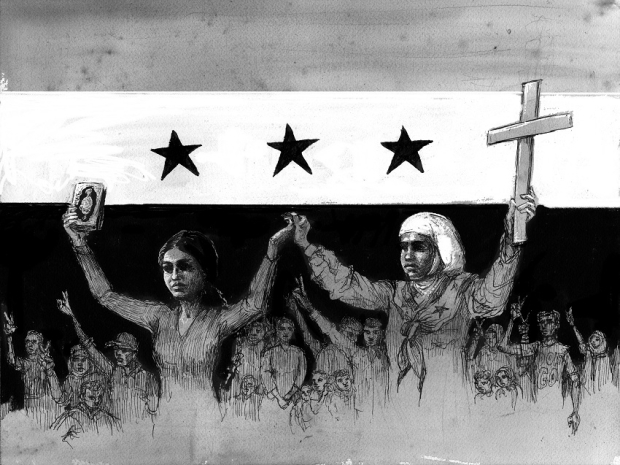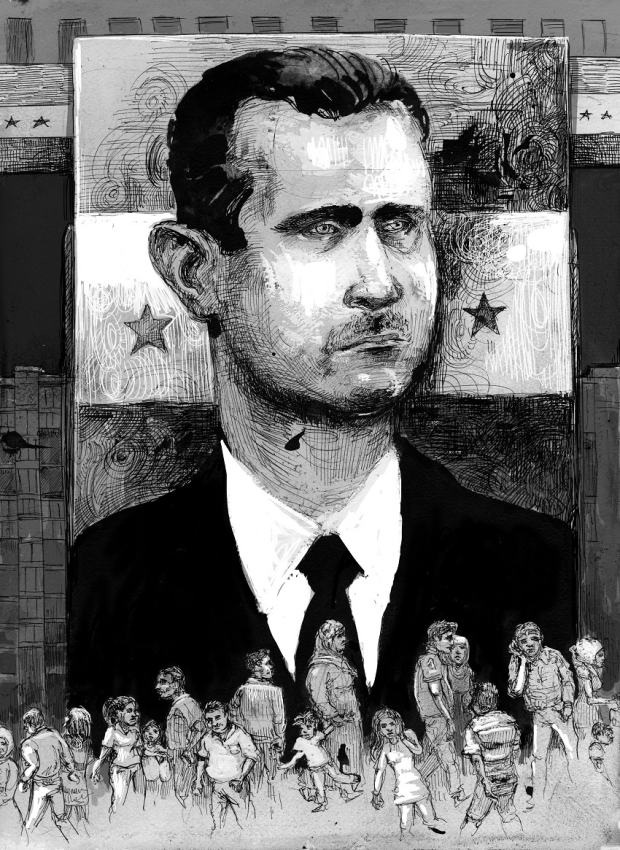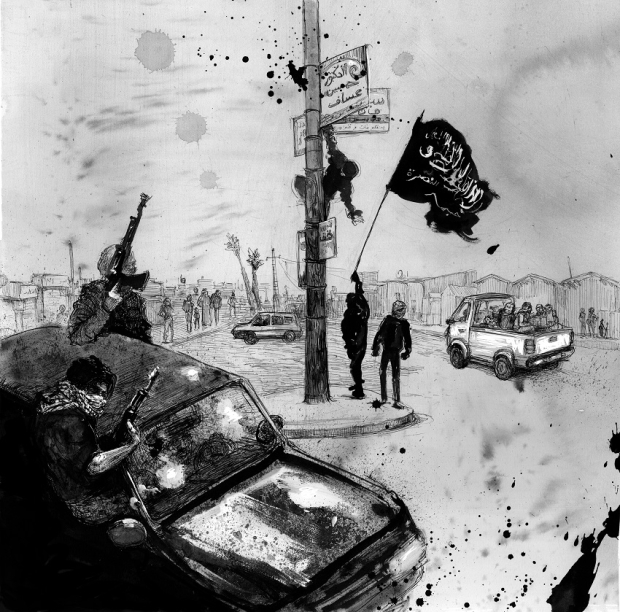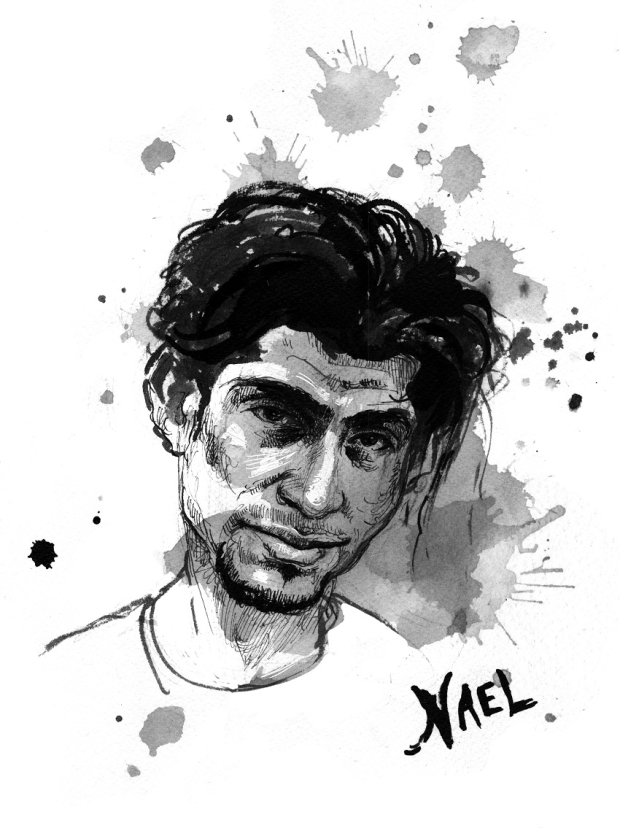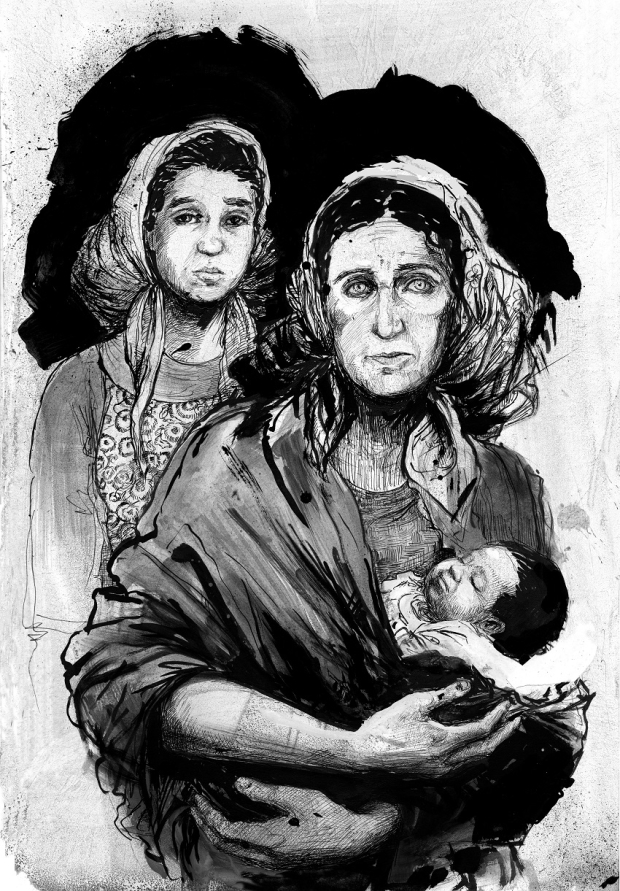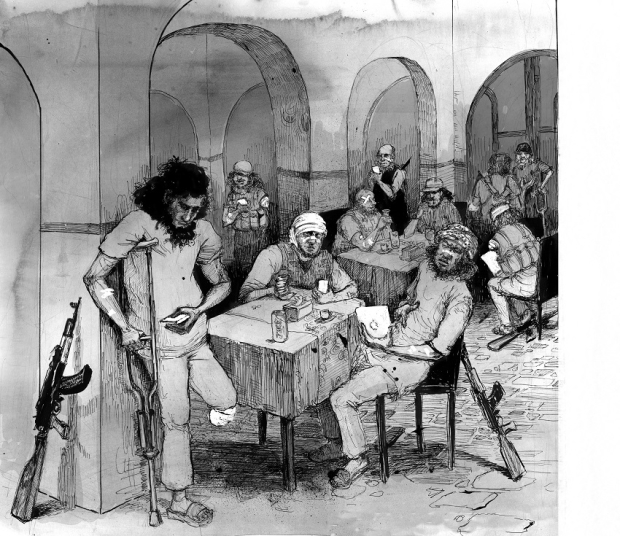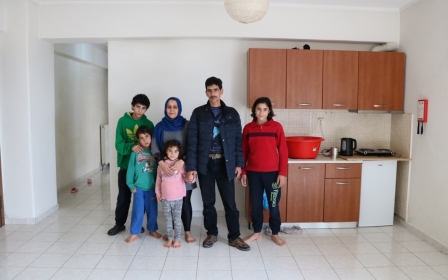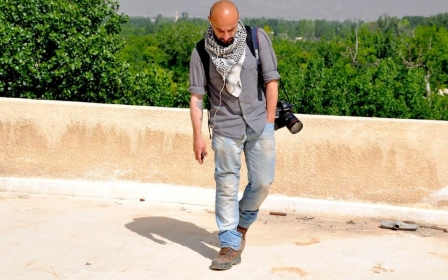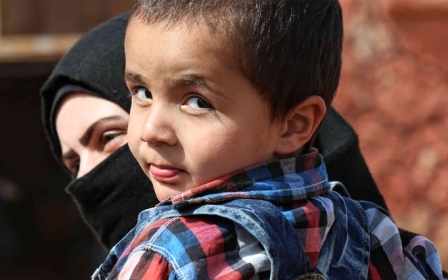The road from Raqqa: A Syrian author lives to tell his tale
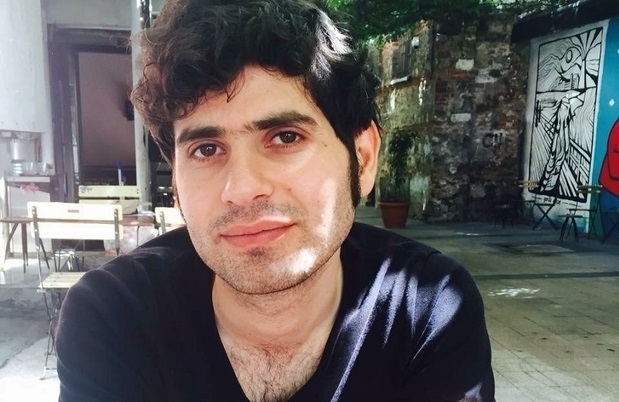
Marwan Hisham, 29, lived through one of the darkest chapters of recent Syrian history, and the story hasn't ended.
As a student of English literature at the University of Aleppo, he joined the first wave of peaceful protests against the government of Bashar al-Assad in Raqqa in 2011.
Before long, he and other protesters were faced with a violent backlash from Syrian authorities and many of their friends and relatives were killed, arrested and tortured.
Hisham somehow survived to tell the tale and his book, Brothers of the Gun: A Memoir of the Syrian War, was published earlier this year.
Dispatches from the ruins
The book is both guttingly honest and haunting. Co-authored with American journalist and illustrator Molly Crabapple, it tells the story of a young man and his friends coming of age during the Syrian war from its early beginnings to the present. It is about sheer survival among the ruins of his old life and homeland to the life of a Syrian refugee in Turkey.
With the help of Crabapple, Hisham says he threw himself into his writing. The words came to him swiftly. Through steady reflection, the process enabled him to relive all of the trauma and come to slightly better terms with what he had lost. His burdens began to melt away as writing proved to be the perfect therapy for him.
In February 2016, amid risks of getting exposed or even killed by IS militants in his hometown, Hisham fled to Turkey. Together with a group of refugees in a minibus, he had to cross numerous checkpoints, avoid minefields and hide from Turkish soldiers at the border - which was closed to Syrian refugees.
The sound of the planes landing or taking off reminded me of bombing
- Marwan Hisham
"It was so hard for me. It took me quite a while to adjust to a more normal lifestyle."
Hisham says he felt a great deal of guilt when he left Raqqa and his thoughts still remain with those left behind in war-torn Syria, including some of his closest relatives.
"I didn't want to go to Europe. Since my wish was to return home as soon as possible, I chose Turkey as my destination," he says.
'It's as if we didn't even exist'
Hisham feels welcome in Turkey, for the most part. However, like the vast majority of Syrian refugees, he says he also faces racism and xenophobia.
"Despite the fact that so many of us remain in Turkey, a lot of the people here have no interest in us," he says. "It is as if we didn't even exist. They know next to nothing about what happened and is still happening to Syria. And this being right on their doorstep, I find that rather incredible."
Hisham believes that the war opened up Syria's traditionally closed society to the world. Though the Syrians lost so much, he says, at the very least, what they were forced to go through will guarantee that they will always appreciate what they have.
"War brings out the best and the worst in people. It is indeed a process of extraction. Only in the imponderable calamity of war one learns what he is truly capable of," he says.
Hisham never wished to even touch a rifle, but Nael had little qualms about doing so because he felt the situation simply demanded it.
Nael, an art student in Damascus, came back to Raqqa and soon joined local rebels, claiming that this was his opportunity to change society for the better. But soon Nael was killed during fighting with government forces in his native city in 2012, writes Hisham, who could do nothing but dedicate Brothers of the Gun to him.
Despite the fact that so many of us remain in Turkey, a lot of the people here have no interest in us...It is as if we didn't even exist
- Marwan Hisham
The ideas of "homeland" and "roots" are themes Hisham also writes about in the concluding chapters of his book.
"Are homeland and roots nothing more than rusty words? Or perhaps there is some sort of gravitational attachment to the soil we covered ourselves with when we were toddlers, to the grass that grew from it and that we ate? Are we responsible to the future generations, or only to our own consciences?" Hisham writes near the end of his book.
In October 2017, the US-backed Syrian Democratic Forces (SDF) liberated Raqqa and dismantled what remained of their self-proclaimed caliphate. Though there is little left of the Raqqa Hisham once knew, he would like to return to the city soon and help rebuild it. One part of his family – some uncles and cousins – has already returned.
Day-to-day lunacy
Crabapple first recognised Hisham's talent with words while following his daily Twitter dispatches from Raqqa, after IS took control of the city in early 2014. She wasted little time introducing him to journalism.
I can sense a certain hope in our people. The sort of hope that just might bring Syria back from the dead, in spite of the horrendous damage done to each and every one of us
- Marwan Hisham
She used Hisham’s dispatches and photos from the ruins of Raqqa and Aleppo for her ink drawings that were published in articles in Vanity Fair, The New York Times and The Intercept.
In late 2014, Hisham and his friends were running their uncle's cafe in Raqqa, which had the only functioning internet connection in the city. IS militants, along with many of their leaders, were all too happy to take advantage of the establishment, spending days and nights there.
In the meantime, Hisham was secretly profiling them for the future readers of a book he was hoping to write one day. His portraits of the motley crew of IS thugs and the utter degeneracy governing their daily interactions are propelled by wit and a commendable aversion to banal moral judgements.
“These men were a band of brothers, and a non-fighter’s life for them was worth no more than the surplus share of ammunition it would take to kill him,” he writes.
"At a certain point I was released from most of my fears. I simply stopped paying attention to that whole aspect of the situation. I had too much to deal with, and any semblance of control had become impossible. So I said f*** it. What will happen, will happen," he writes.
Within a short time, Marwan essentially became one of the vital voices coming out of Syria. He contributed to Vanity Fair, The Intercept, CNN and The New York Times. However, his collaboration with the foreign press had turned him into an obvious target, forcing him to flee to Turkey.
I experienced some unimaginable things – all of us did. No one can be prepared for those kinds of experiences, yet everyone should be
- Marwan Hisham
Writing a book in English had been Hisham’s dream since high school. Shortly after arriving in Ankara in 2016, Hisham and Crabapple sent a book proposal to a number of publishers and received five offers. They decided to go with the US publisher One World, an imprint of Random House.
Hisham says he does not have any new writing plans as of yet. He dreams about writing a novel, but for now he feels his imagination could hardly live up to writing about his actual experience.
Hisham realises that the war has changed him a great deal, just like everyone around him.
"The war made me come of age. I experienced some unimaginable things – all of us did. No one can be prepared for those kinds of experiences, yet everyone should be. We learned how to survive as we went along.
"Our attitude to life itself has been transformed. Every day brought its own lesson. All our former views have been dismantled. Nothing in our lives could be taken for granted anymore, nor can it ever be again," he says.
Middle East Eye propose une couverture et une analyse indépendantes et incomparables du Moyen-Orient, de l’Afrique du Nord et d’autres régions du monde. Pour en savoir plus sur la reprise de ce contenu et les frais qui s’appliquent, veuillez remplir ce formulaire [en anglais]. Pour en savoir plus sur MEE, cliquez ici [en anglais].


